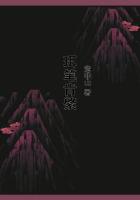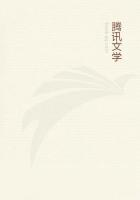`How much will it be,'he repeated,puzzled.`Oh --how much does it weigh I-s'pose-yer-mean.Well,it ain't been weighed at all --we ain't got no scales.A butcher does all that sort of think.We just kills it,and cooks it,and eats it --and goes by guess.What won't keep we salts down in the cask.I reckon it weighs about a ton by the weight of it if yer wanter know.Mother thought that if she sent any more it would go bad before you could scoff it.I can't see --'
`Yes,yes,'said Mary,getting confused.`But what I want to know is,how do you manage when you sell it?'
He glared at her,and scratched his head.`Sell it?
Why,we only goes halves in a steer with some one,or sells steers to the butcher --or maybe some meat to a party of fencers or surveyors,or tank-sinkers,or them sorter people --'
`Yes,yes;but what I want to know is,how much am I to send your mother for this?'
`How much what?'
`Money,of course,you stupid boy,'said Mary.`You seem a very stupid boy.'
Then he saw what she was driving at.He began to fling his heels convulsively against the sides of his horse,jerking his body backward and forward at the same time,as if to wind up and start some clockwork machinery inside the horse,that made it go,and seemed to need repairing or oiling.
`We ain't that sorter people,missus,'he said.`We don't sell meat to new people that come to settle here.'Then,jerking his thumb contemptuously towards the ridges,`Go over ter Wall's if yer wanter buy meat;they sell meat ter strangers.'(Wall was the big squatter over the ridges.)`Oh!'said Mary,`I'm SO sorry.Thank your mother for me.She IS kind.'
`Oh,that's nothink.She said to tell yer she'll be up as soon as she can.
She'd have come up yisterday evening --she thought yer'd feel lonely comin'new to a place like this --but she couldn't git up.'
The machinery inside the old horse showed signs of starting.
You almost heard the wooden joints CREAK as he lurched forward,like an old propped-up humpy when the rotting props give way;but at the sound of Mary's voice he settled back on his foundations again.
It must have been a very poor selection that couldn't afford a better spare horse than that.
`Reach me that lump er wood,will yer,missus?'said the boy,and he pointed to one of my `spreads'(for the team-chains)that lay inside the fence.`I'll fling it back agin over the fence when I git this ole cow started.'
`But wait a minute --I've forgotten your mother's name,'said Mary.
He grabbed at his thatch impatiently.`Me mother --oh!--the old woman's name's Mrs Spicer.(Git up,karnt yer!)'
He twisted himself round,and brought the stretcher down on one of the horse's `points'(and he had many)with a crack that must have jarred his wrist.
`Do you go to school?'asked Mary.There was a three-days-a-week school over the ridges at Wall's station.
`No!'he jerked out,keeping his legs going.`Me --why I'm going on fur fifteen.The last teacher at Wall's finished me.
I'm going to Queensland next month drovin'.'(Queensland border was over three hundred miles away.)`Finished you?How?'asked Mary.
`Me edgercation,of course!How do yer expect me to start this horse when yer keep talkin'?'
He split the `spread'over the horse's point,threw the pieces over the fence,and was off,his elbows and legs flinging wildly,and the old saw-stool lumbering along the road like an old working bullock trying a canter.
That horse wasn't a trotter.
And next month he DID start for Queensland.He was a younger son and a surplus boy on a wretched,poverty-stricken selection;and as there was `northin'doin''in the district,his father (in a burst of fatherly kindness,I suppose)made him a present of the old horse and a new pair of Blucher boots,and I gave him an old saddle and a coat,and he started for the Never-Never Country.
And I'll bet he got there.But I'm doubtful if the old horse did.
Mary gave the boy five shillings,and I don't think he had anything more except a clean shirt and an extra pair of white cotton socks.
`Spicer's farm'was a big bark humpy on a patchy clearing in the native apple-tree scrub.The clearing was fenced in by a light `dog-legged'fence (a fence of sapling poles resting on forks and X-shaped uprights),and the dusty ground round the house was almost entirely covered with cattle-dung.There was no attempt at cultivation when I came to live on the creek;but there were old furrow-marks amongst the stumps of another shapeless patch in the scrub near the hut.
There was a wretched sapling cow-yard and calf-pen,and a cow-bail with one sheet of bark over it for shelter.There was no dairy to be seen,and I suppose the milk was set in one of the two skillion rooms,or lean-to's behind the hut,--the other was `the boys'bedroom'.
The Spicers kept a few cows and steers,and had thirty or forty sheep.
Mrs Spicer used to drive down the creek once a-week,in her rickety old spring-cart,to Cobborah,with butter and eggs.The hut was nearly as bare inside as it was out --just a frame of `round-timber'
(sapling poles)covered with bark.The furniture was permanent (unless you rooted it up),like in our kitchen:a rough slab table on stakes driven into the ground,and seats made the same way.
Mary told me afterwards that the beds in the bag-and-bark partitioned-off room (`mother's bedroom')were simply poles laid side by side on cross-pieces supported by stakes driven into the ground,with straw mattresses and some worn-out bed-clothes.Mrs Spicer had an old patchwork quilt,in rags,and the remains of a white one,and Mary said it was pitiful to see how these things would be spread over the beds --to hide them as much as possible --when she went down there.
A packing-case,with something like an old print skirt draped round it,and a cracked looking-glass (without a frame)on top,was the dressing-table.
There were a couple of gin-cases for a wardrobe.The boys'beds were three-bushel bags stretched between poles fastened to uprights.















